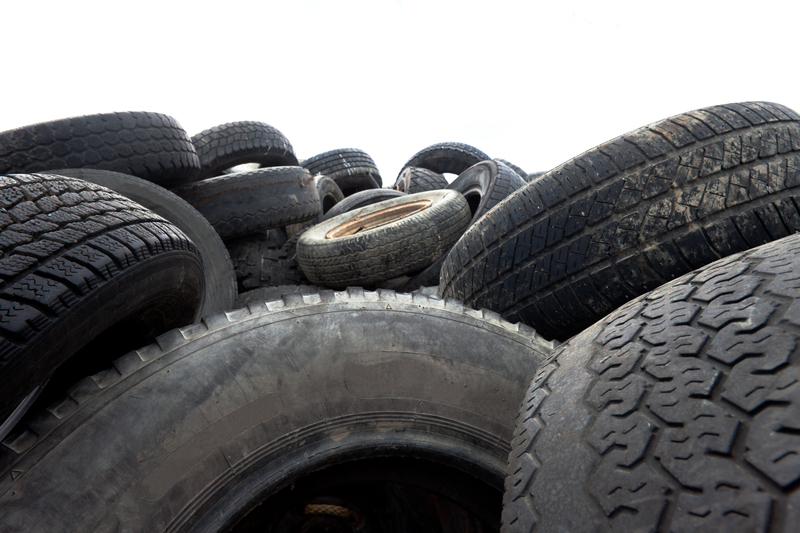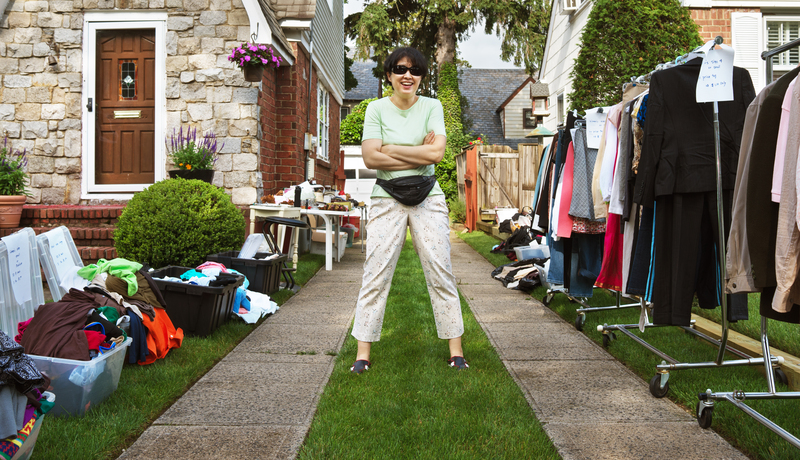Toy Disposal Guides in the UK
Posted on 08/12/2024
When it comes to toy disposal in the UK, it's essential to adopt responsible and eco-friendly methods, not only for the sake of the environment but also for ensuring that toys are disposed of safely. Toys often contain various materials like plastic, metal, and electronic components that need special attention during disposal. This guide aims to provide you with comprehensive steps, tips, and insights on how to dispose of toys responsibly.
Why Responsible Toy Disposal Matters
Before diving into the how-to aspects, let's understand why it's crucial to dispose of toys responsibly. Toys made of plastic and metal are not biodegradable and can take hundreds of years to break down. Improper disposal can lead to environmental pollution, contribute to landfill overload, and in some cases, be hazardous. Hence, making an effort to dispose of toys responsibly is a step towards a sustainable future.

Step-by-Step Guide to Toy Disposal
1. Assess the Condition
The first step in the toy disposal process is to assess the condition of the toys. Not all toys need to be thrown away; some can be reused or repurposed. Check if the toy is still functional and in good condition.
- Reusable Toys: If the toys are still in good shape, consider donating them to charities, local shelters, or schools.
- Broken Toys: If the toy is broken beyond repair, it needs to be disposed of responsibly.
2. Recycle Where Possible
Many toys contain recyclable materials such as plastic, metal, and electronics.
- Plastic Toys: Check the recycling symbol on plastic toys. If they are recyclable, drop them in the appropriate recycling bin.
- Electronic Toys: E-waste should be taken to designated electronic recycling facilities. Many local councils in the UK provide drop-off points for electronic waste.
- Metal Toys: Metal components can often be recycled separately. Look for local scrap metal facilities that accept household items.
3. Hazardous Materials
Certain toys may contain hazardous substances such as batteries, paints, and electronic components. These should never be thrown into regular bins.
- Batteries: Remove and recycle batteries separately. Many supermarkets and other retail outlets in the UK have battery recycling points.
- Painted Toys: Lead-based paint toys should be treated with care and disposed of according to local hazardous waste guidelines.
4. Upcycling and Repurposing
If you have a knack for creativity, consider upcycling or repurposing old toys. Old toys can be transformed into decorative items, storage containers, or even art pieces.
Upcycling Ideas:
- Turn an old toy house into a birdhouse.
- Use LEGO pieces to create unique photo frames.
- Transform plush toys into cuddly pillows.
Tips for Responsible Toy Disposal
- Research Local Options: Always check with your local council for specific disposal or recycling guidelines.
- Host a Toy Swap: Organize a toy swap event in your community where families can exchange toys. This is an excellent way to ensure good toys get reused.
- Eco-Friendly Purchases: When buying new toys, look for eco-friendly options. Sustainable toys are made of biodegradable materials and are designed to last longer.
- Repair Before Disposal: Sometimes toys only need a minor repair. Before deciding to throw them away, check if they can be fixed.
Pros and Cons of Various Toy Disposal Methods
Pros:
- Donating Toys:
- Environmentally friendly.
- Benefits those in need.
- Recycling:
- Conserves natural resources.
- Reduces environmental pollution.
- Upcycling:
- Creative and fun.
- Reduces waste.
Cons:
- Donating Toys:
- Not all toys are accepted.
- Requires effort to find a suitable place.
- Recycling:
- Not all materials are recyclable.
- Requires sorting and preparation.
- Upcycling:
- Requires time and creativity.
- Limited by the type and condition of the toy.

Takeaways
- Always assess the condition of toys before disposing of them.
- Utilize donation, recycling, and upcycling as primary disposal methods.
- Be conscious of local disposal guidelines and eco-friendly practices.
- Encourage sustainable toy purchases and repairs before disposal.
Conclusion
Disposing of toys responsibly in the UK is crucial for environmental sustainability and community well-being. By assessing toy conditions, recycling, donating, and getting creative with upcycling, you can minimize your environmental footprint and contribute to a healthier planet. Always stay informed about local disposal guidelines and make every effort to choose eco-friendly solutions. Together, we can make a significant impact on reducing waste and promoting a more sustainable way of living.
Latest Posts
DIY Paper Recycling at Home in 6 Steps
Advance Your Recycling Approach
Plant-Based Plastics: Future Innovations






